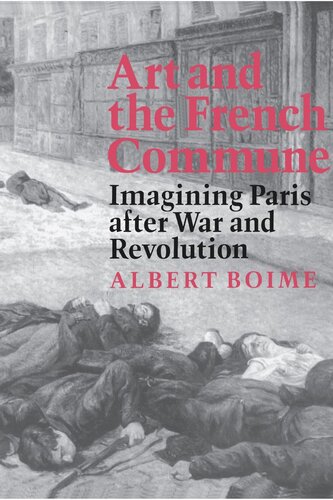

Most ebook files are in PDF format, so you can easily read them using various software such as Foxit Reader or directly on the Google Chrome browser.
Some ebook files are released by publishers in other formats such as .awz, .mobi, .epub, .fb2, etc. You may need to install specific software to read these formats on mobile/PC, such as Calibre.
Please read the tutorial at this link: https://ebookbell.com/faq
We offer FREE conversion to the popular formats you request; however, this may take some time. Therefore, right after payment, please email us, and we will try to provide the service as quickly as possible.
For some exceptional file formats or broken links (if any), please refrain from opening any disputes. Instead, email us first, and we will try to assist within a maximum of 6 hours.
EbookBell Team

4.3
8 reviewsIn this bold exploration of the political forces that shaped Impressionism, Albert Boime proposes that at the heart of the modern is a "guilty secret"--the need of the dominant, mainly bourgeois, classes in Paris to expunge from historical memory the haunting nightmare of the Commune and its socialist ideology. The Commune of 1871 emerged after the Prussian war when the Paris militia chased the central government to Versailles, enabling the working class and its allies to seize control of the capital. Eventually violence engulfed the city as traditional liberals and moderates joined forces with reactionaries to restore Paris to "order"--the bourgeois order. Here Boime examines the rise of Impressionism in relation to the efforts of the reinstated conservative government to "rebuild" Paris, to return it to its Haussmannian appearance and erase all reminders of socialist threat.
Boime contends that an organized Impressionist movement owed its initiating impulse to its complicity with the state's program. The exuberant street scenes, spaces of leisure and entertainment, sunlit parks and gardens, the entire concourse of movement as filtered through an atmosphere of scintillating light and color all constitute an effort to reclaim Paris visually and symbolically for the bourgeoisie. Amply documented, richly illustrated, and compellingly argued, Boime's thesis serves as a challenge to all cultural historians interested in the rise of modernism.